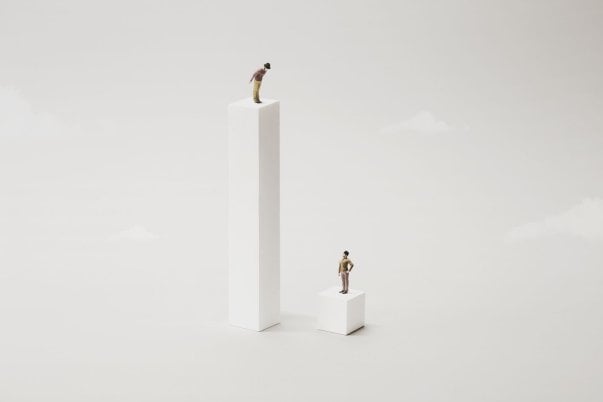Comparison: The Joy Thief

By Julie Fitz-Gerald
Mark Twain said it best: “Comparison is the death of joy.” This sentiment has roots that stretch back to Biblical times, yet comparing ourselves, our families and our career successes to those around us can be a hard habit to break.
American social psychologist Leon Festinger, well known for his social comparison theory, believed that the human desire to compare ourselves to others is an innate biological drive similar to that of thirst and hunger. So, if comparing ourselves to others is simply second nature, can it really be that bad for us? The short answer is YES.
In an Inc.com article by Amy Morin, author of 13 Things Mentally Strong People Don’t Do, she explains how now more than ever before we are bombarded by “opportunities to measure your worth against those around you. Everyone is touting their success on social media and it can lead you to question whether you’re good enough.”
Doubts can also creep in when you’re sitting around the table at the fire hall listening to so-and-so brag about how his incredible hockey-playing-kid is being scouted by several drool-worthy teams, meanwhile, yours would rather play Xbox than hockey any day of the week. “It’s hard not to categorize people as either being above or below you. But, social comparisons do more harm than good,” Morin explains. “No matter how well you’re doing, comparing yourself to other people takes your eyes off your goals. And it can cause you to feel bad about how you’re doing – because there will always be someone who looks happier, wealthier, healthier and more successful.”
In a Psychology Today article by Deborah Carr, Ph.D., entitled “3 Reasons to Stop Comparing Yourself to Others,” Carr says that social comparison is wrong for three reasons: 1. Others’ so-called “perfection” is an illusion; 2. Life isn’t fair; and 3. Comparisons turn friends and allies into rivals. Instead, Carr suggests that the only person we should compare ourselves to is who we were in the past and who we want to be in the future. This temporal comparison (the way things are now compared to the way they used to be) helps to structure our goals and to troubleshoot. Carr explains, “By focusing on self-improvement rather than one-upmanship, we’ll have a more realistic and insightful strategy for reaching our goals, and ideally, our friends and loved ones will be there to support us along the way.”
Podcast
Contests & Promotions
















